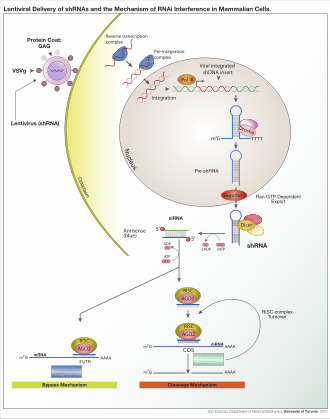Inspired by tiny particles that carry cholesterol through the body, MIT chemical engineers have designed nanoparticles that can deliver snippets of genetic material that turn off disease-causing genes.
This approach, known as RNA interference (RNAi), holds great promise for treating cancer and other diseases. However, delivering enough RNA to treat the diseased tissue, while avoiding side effects in the rest of the body, has proven difficult.
The new MIT particles, which encase short strands of RNA within a sphere of fatty molecules and proteins, silence target genes in the liver more efficiently than any previous delivery system, the researchers found in a study of mice.
"What we're excited about is how it only takes a very small amount of RNA to cause gene knockdown in the whole liver. The effect is specific to the liver - we get no effect in other tissues where you don't want it," says Daniel Anderson, the Samuel A. Goldblith Associate Professor of Chemical Engineering and a member of MIT's Koch Institute for Integrative Cancer Research.
more at http://www.medicalnewstoday.com/releases/272481.php



 Your new post is loading...
Your new post is loading...








